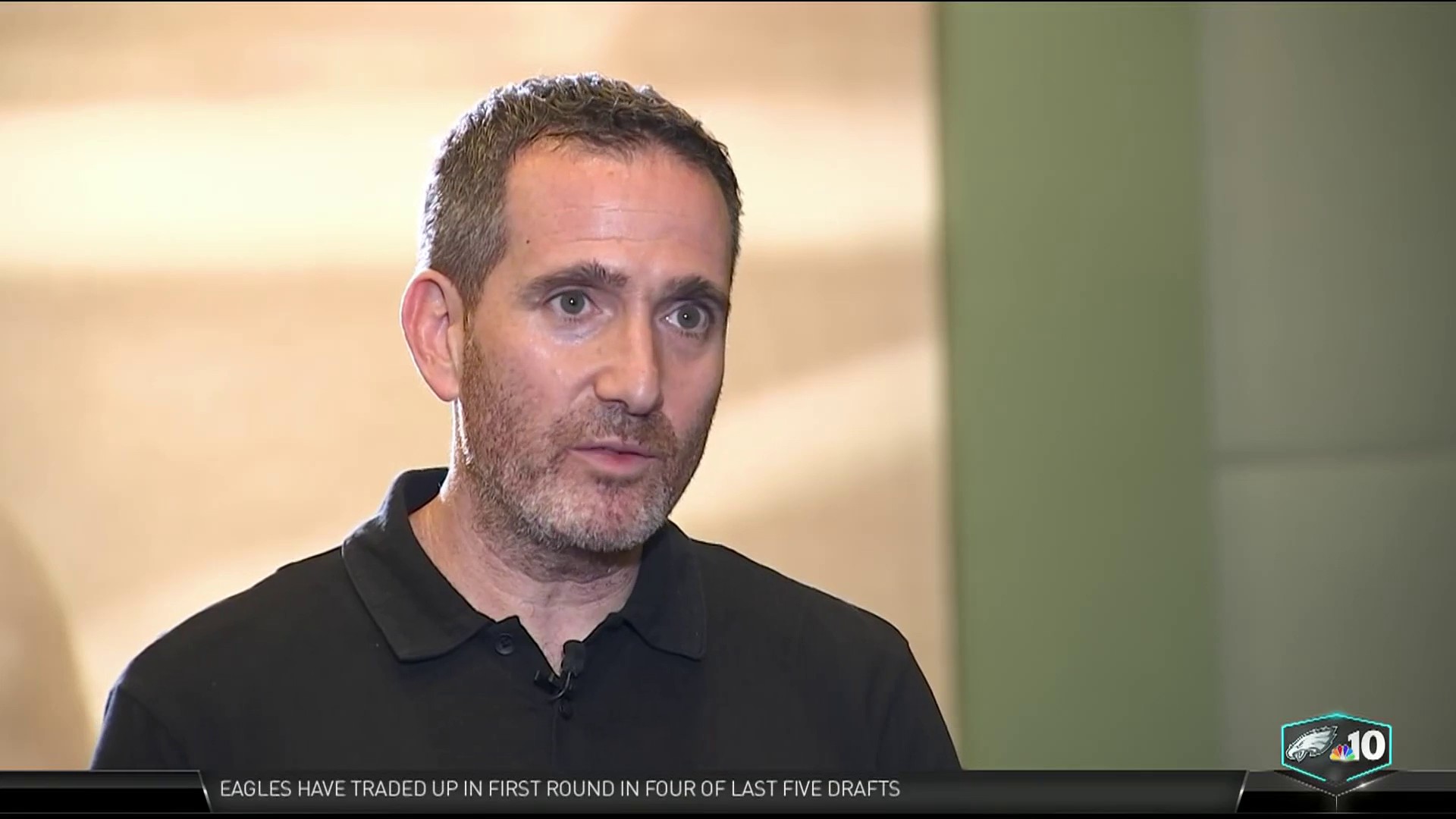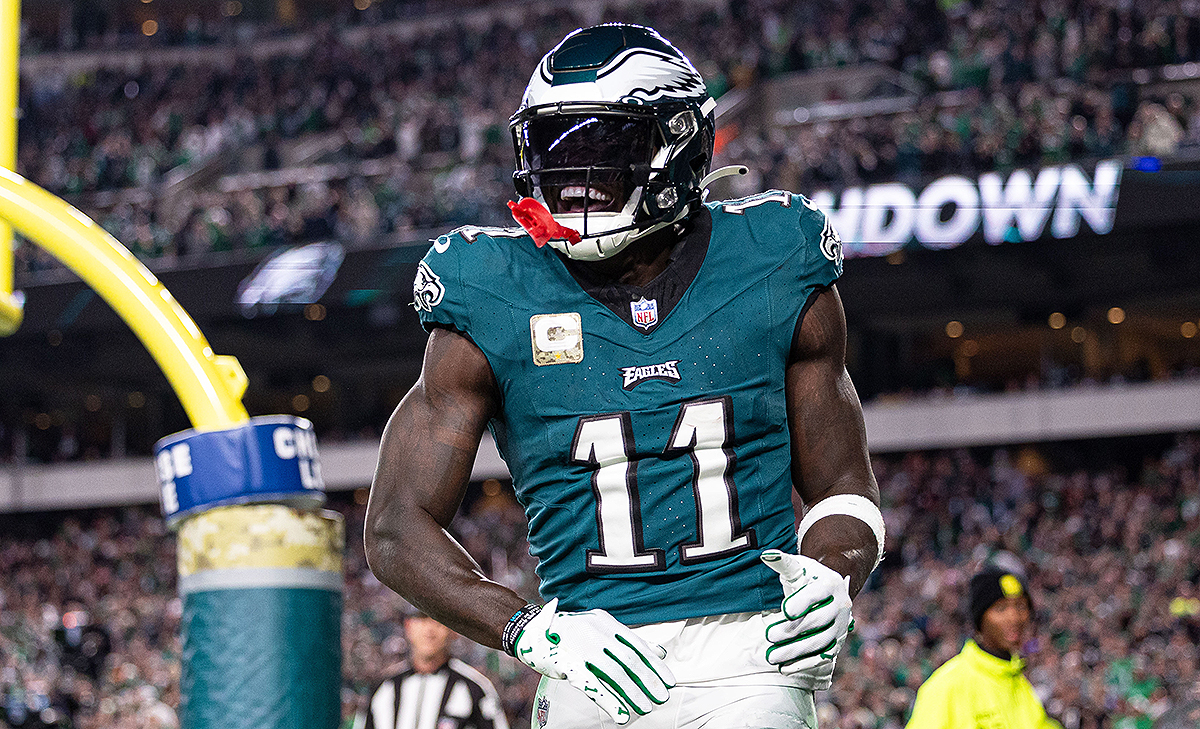As the 32nd pick drew closer, the tweets grew more and more frequent.
"The Eagles have to take Nick Chubb!"
"I can't believe Derrius Guice is still on the board. The Eagles gotta take him!"
"Lots of quality running backs still on the board!"
It was never going to happen.
The Eagles haven't drafted a running back in the first round in 33 years, and they might not draft one in the first round for another 33 years.
They won a Super Bowl last year relying heavily on their running attack without a running back taken in the first four rounds. And they haven't taken a running back in the first three rounds in nine years, the longest they've gone without selecting one with a premium pick since the 1970s.
Philadelphia Eagles
Complete coverage of the Philadelphia Eagles and their NFL rivals from NBC Sports Philadelphia.
So it sure seems like there's an organizational philosophy in place to focus on certain positions early in the draft - historically, offensive and defensive line - and cobble together a running back corps.
It sure worked last year. They signed LeGarrette Blount (a one-time undrafted free agent) after the draft, they signed rookie Corey Clement after the draft and they traded for Jay Ajayi (a one-time fifth-round pick) after the draft.
Then they went out and averaged 132 rushing yards per game, third-most in the NFL, and 4.5 yards per carry, fourth-best in the NFL.
"If you look historically, you can get good running backs anywhere through the draft," Eagles Vice President of player personnel Joe Douglas said after the draft.
"You can get great running backs in the first. Like the draft has proven the last few years, you can get great running backs in the third. Like we proved last year, you can get a really good running back after the draft.
"So it just works out. Seems to work out that way every year with the depth of the draft at that position."
Eagles vice president of football operations Howie Roseman said the Eagles aren't opposed to using a high pick on a running back. It just hasn't worked out that way since they took LeSean McCoy in the second round in 2009.
"Honestly, I think it's a coincidence more than anything, it's just worked out that way," Roseman said. "We've had first-round grades, second-round grades, third-round grades on running backs every year."
But the reality is the Eagles haven't drafted a productive running back in the first round since Steve Van Buren in 1944 (although 1988 pick Keith Byars did become a very good receiver).
While they didn't draft a back this year, they did sign heralded undrafted rookie Josh Adams, a Bucks County native who was very productive the last three years at Notre Dame.
So the current running back group includes two fourth-round picks (Darren Sproles, Donnel Pumphrey), two fifth-round picks (Ajayi, Wendell Smallwood) and two undrafted players (Corey Clement, Adams).
And building a running game around unheralded players or cheaper free agents means more money for other positions.
Also, the running back-by-committee approach that head coach Doug Pederson prefers isn't really conducive to first-round picks, who are going to expect 300 carries a season.
According to Spotrac, the Eagles rank 27th in the NFL in running back spending in 2018 based on current rosters.
It's not that the don't value running backs. They do. The Eagles have the fourth-most rushes in the NFL in the two years since Doug Pederson became head coach (behind only the Bills, Cowboys and Titans).
They've just figured out that with the right evaluations it's possible to build a dangerous and productive running back room through the secondary market.



